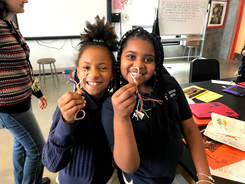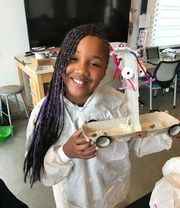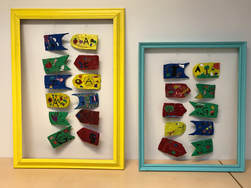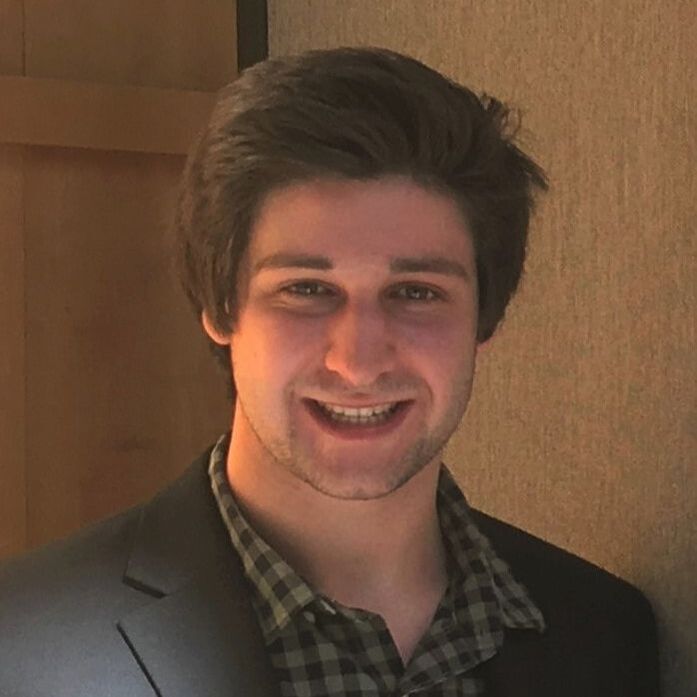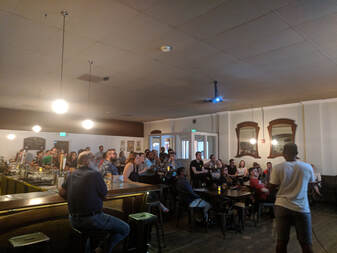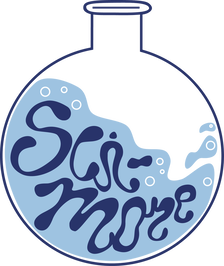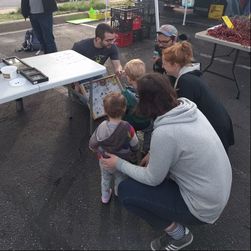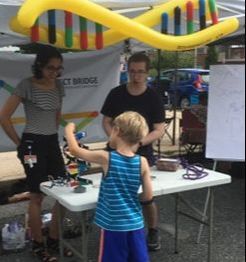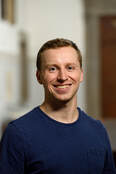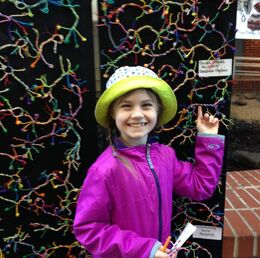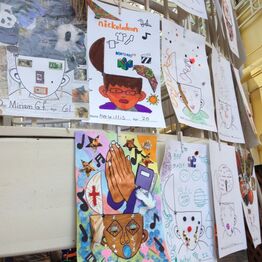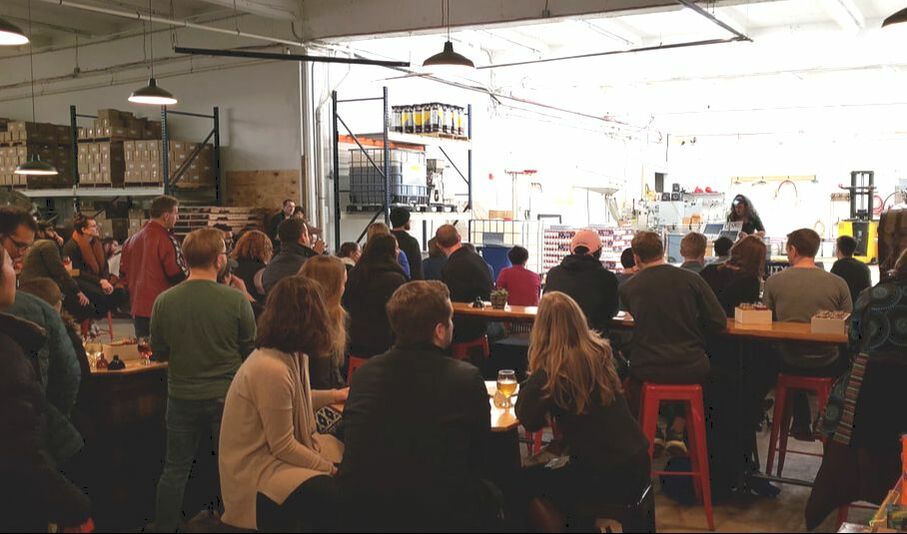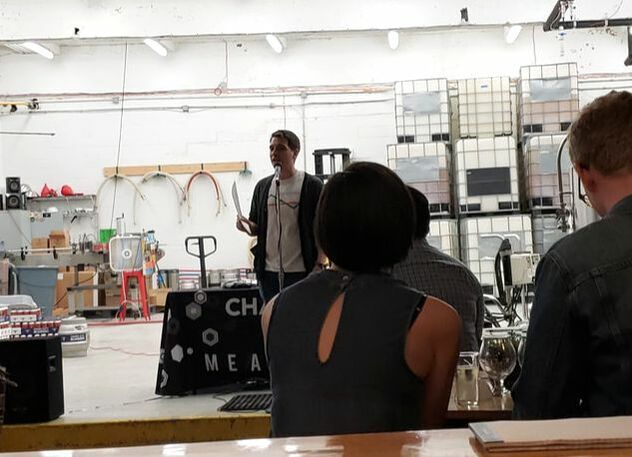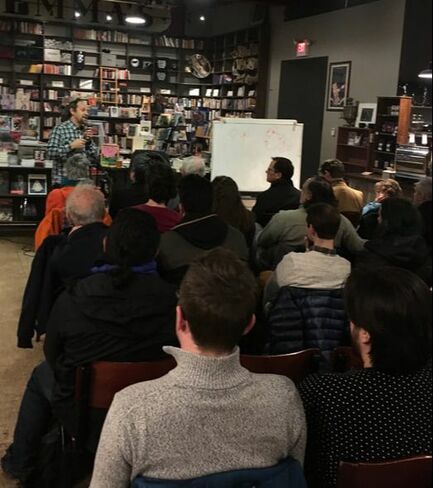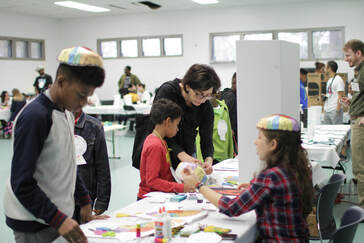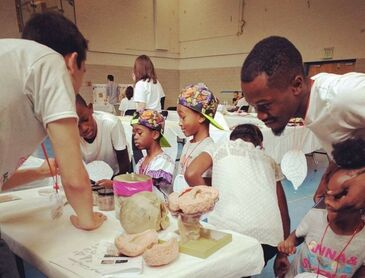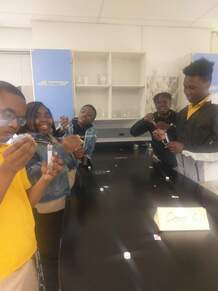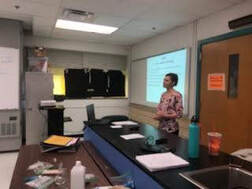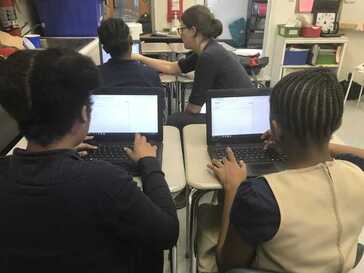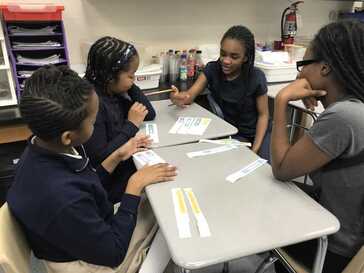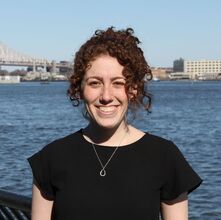For general inquiries, collaborations, and ideas for new projects, contact Baltimore chapter co-presidents:
|
Anya Kim
[email protected] |
Michael Xie
[email protected] |
Meet our committees!
|
Science Outside the Lines
Each week, the Science outside the Lines (SOTL) crew, consisting of 3rd and 4th grade students at Henderson-Hopkins Elementary school, embarks on a journey to explore the inherent similarities between the arts and sciences. Whether it’s finding the connection between cell biology and Pointillism or engineering rovers for space exploration out of recycled materials, students are bound to gain a new perspective on arts and science integration. Class begins with a brief and interactive lesson lead by graduate students and post docs from Johns Hopkins and the lesson culminates in an art project specifically designed to reinforce different scientific concepts. Working with our community partner, Art with a Heart (https://artwithaheart.net/), we are able to supplement both the art and science curriculum for our students in a stress-free, after-school environment. If you are interested in honing your skills in leadership, mentorship, and communication by volunteering with SOTL, please reach out to Nicole Carter or Patrick Cooke. Volunteers are specifically needed to lead and plan lessons and staff the classroom.
SOTL is made possible by the American Society for Cell Biology. |
|
Science Communication
The science communication committee has two broad goals: to train scientists how to explain their work to a general audience, and to find new and better ways to present scientific information to the public. We are currently working on four projects to address these goals:
Science Communication Workshops Combine brief presentations from expert science communicators with breakout sessions which allow participants to hone their science ‘pitches’, present them to the group, and get immediate feedback. Science Slams Scientists give brief, 5-minute presentations of their work to a general audience and compete for prizes for the best communicated and most creative talks. Slams take place in various public spaces around Baltimore, such as Red Emma’s Café and De Kleine Duivel. Brain Infinity Room An immersive, interactive art installation that teaches the basic principles of how the brain works. This project is made possible by Two Photon Art. Twitter: @PBSciComm
|
|
The Sci'More Podcast
Welcome to the Sci’more Show! We believe that it is important to uphold the relationship between scientists and their communities. Our goal is to discuss and breakdown complex scientific topics and principles for the members of the Baltimore community. If you want to B’more like a scientist, then listen to the Sci’more Show today! Find out where to listen here: https://podcasters.spotify.com/pod/show/scimore.
We are always looking for suggestions for new questions and topics. Send an email to [email protected] to let us know what you want to hear on the Sci'more Podcast!
We are always looking for suggestions for new questions and topics. Send an email to [email protected] to let us know what you want to hear on the Sci'more Podcast!
|
Science at the Market
Science at the Market is a monthly event during the warm months of the year (typically April through September). We set up a booth at local Farmers Markets for the whole time the market is open, and there we host some fun experiments centered around a theme that both kids and adults can do. Previous examples of our outreach include DNA, water, insects, fermentation, and taste. If you’d like to see us in action or help volunteer, please reach out to Mehmet Keles and ask which days Project Bridge will be at the market! |
|
Brain Connect
The Brain Connect began in 2018 as an effort to educate and engage the Baltimore community during Brain Awareness Week. It consists of a week of short neuroscience lessons taking place in Baltimore city schools, which teach about the structure and function of the brain through a collaborative art project. These lessons also explore ways to impact your own brain function in order to promote mental well-being. The week of lessons culminates in Baltimore Brain Fest, an all-day fair with hands-on brain related demonstrations for the public to learn about all the amazing things the nervous system does! This event doubles as an opportunity to display students' artwork to the Baltimore community.
|
|
Science Gong Show
The Science Gong Show is a science communication event held at Charm City Meadworks. The goal is to create a dynamic learning environment where Baltimoreans can learn more about the exciting research scientists are performing on a daily basis. In creating this event, scientists will be able to hone their communication skills. To do this, scientists deliver a brief (4 minute) presentation without slides on their chosen topic that concisely describes the science behind the topic and why it's important. However, if the scientist uses any jargon (i.e., undefined words and phrases only understood by other scientists), the audience members will "gong" the presenter with provided cowbells. When this happens, the scientist must stop, define the jargon used, and re-describe their work without using the undefined phrase. More info here!
|
|
Science Café
The Baltimore Science Cafés bring local scientists to the community for casual conversations about their research. Topics span all areas of science, from gene editing to NASA probes to political polling methods. Researchers briefly present their work using only a whiteboard, followed by Q&A with the audience. The cafés are held in venues across Baltimore to better engage the diverse populations that call Charm City home. We hope this environment fuels interactions between scientist and non-scientist neighbors! Watch Project Bridge social media for the next event!
|
|
Baltimore Brain Fest
Committee Leaders:
Allison Taylor [email protected] Blake Creighton [email protected] Isis Wyche [email protected] Baltimore Brain Fest is held every year as the culminating event for Brain Awareness Week. Community partners, Johns Hopkins affiliates, and Project Bridge volunteers come together to host an event filled with fun experiments, games, crafts, and other activities to learn about the brain. Come check out our brain-themed escape room, compare brains across the animal kingdom, and take home your very own brain-themed artwork. If you would like to learn more about how you or your organization can get involved in Baltimore Brain Fest, reach out to the committee leaders at the emails above! Information regarding volunteering can be found here and more information about Brain Fest can be found at our website, www.brainfest.org. |
MD DNA Day
|
MD DNA Day is an annual program for graduate students and scientists to travel to Baltimore and Maryland high school science classrooms to present engaging, hands-on modules covering a topic related to genetics and genomics. High school students meet a real-life young scientist and learn about their journey while early-career scientists get teaching, outreach, and communication experience. MD DNA Day operates in collaboration with the NIH DNA Day initiative that commemorates the discovery of the double helix structure of DNA and the completion of the human genome project every year in late April. Our modules are ready to go and science teacher-approved, so reach out to Nick Keith to be an ambassador or join the committee! For more information about MD DNA day, head to http://mddnaday.wordpress.com/
|
Girls' Coding Club
|
At Girls' Coding Club we do fun coding activities with middle school girls to get them excited about computer science and STEM! We visit the Midtown Academy near Penn Station every other Monday from 3:30 to 4:30. During each visit we lead an engaging hour-long project. The students work in groups with one graduate student mentor per group to answer questions. Contact Elissa Sutlief if you are interested in volunteering.
|
Student Advocacy Workshop Series
The Student Advocacy Workshop Series is a new initiative that will allow Baltimore City high school students to perform research on a current issue affecting their communities and advocate for change. We work with teachers to integrate workshops and projects relating to these topics into the existing high school curriculum. Our goal is to not only enrich students’ understanding of their science and social studies curriculum, but also foster an interest in scientific communication, policy, and advocacy work.
Project Bridge is funded by the Johns Hopkins Graduate Student Association, the Johns Hopkins Alumni Association, and the Johns Hopkins Department of Neuroscience.
